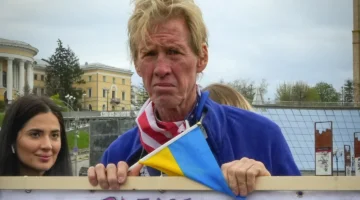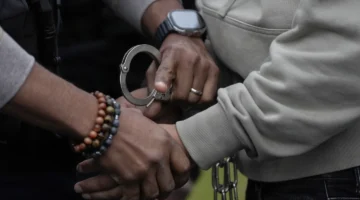Election officials, experts rebuff Trump’s ‘rigged’ claim
JONATHAN LEMIRE, Associated Press
NEW YORK (AP) — Election officials nationwide dismiss Donald Trump’s incendiary claim the presidential election is rigged against him, with Republicans and Democrats alike rejecting the idea anyone could overcome the logistical challenges of tilting a process run by officials of both parties and average citizens at thousands of polling places and election offices.
Elections in the United States are held in open spaces, not in back rooms, and ordinary citizens serve as election officials. They are not public officials who might report to a candidate on the ballot. In many states, the workers, who receive training before Election Day, are drawn evenly from supporters of both parties.
New York-based election lawyer Jerry Goldfeder says more than 3,000 counties regulate elections and notes each state has its own election laws, even for president.
“This decentralized process makes it next to impossible for anyone to change the results of the election, whether it’s a foreign power or a political party,” he said.
Poll workers and election officials are empowered to flag any voting irregularity. Both candidates usually have scores of lawyers on call to challenge any suspect ballot or behavior. Ballots are tabulated in public spaces. Moreover, post-Election Day safeguards are in place, like canvasses of randomly selected districts to verify election totals and ballots match.
“Our election system today is more secure than it’s ever been,” said Jon Husted, secretary of state in Ohio. A Republican who has said he will vote for Trump, Husted said he was “confident elections would run smoothly” in his state.
“To assert an election is rigged without evidence is irresponsible,” Husted said.
Any anti-Trump conspiracy would also probably need to involve members of his own party, such as Husted. Top election officials in 29 states are Republicans, including in the battlegrounds like Florida, North Carolina and Nevada.
Florida Sen. Marco Rubio, who supports Trump, has urged the GOP nominee to stop making the claim about a rigged election and said people in his state — where vote-counting problems and an improbably close race left the 2000 presidential race undecided for more than a month — should have confidence in the result.
Each of the state’s 67 counties conducts its own election. “I guarantee you there’s not a 67-county conspiracy to rig this election,” Rubio said. “Second, the governor of the state of Florida is a Republican. He appoints the people who run the Division of Elections. Third, there is no evidence behind any of this, so this should not continue to be said.”
Trump first claimed the election could be rigged in August and he has returned to that theme with full-throated intensity. He suggested in the final debate that a lack of confidence in the process was preventing him from guaranteeing that he would honor its result.
“They even want to try to rig the election at the polling booths, and believe me, there’s a lot going on,” Trump told a crowd in Wisconsin this week. “Do you ever hear these people? They say there’s nothing’s going on. People that have died 10 years ago are still voting. Illegal immigrants are voting.”
He talked in the debate about “millions of people that are registered to vote that shouldn’t be registered to vote.” That was a reference to a 2012 Pew Research study that found that about 24 million voter registrations — or one of every eight — were no longer valid or significantly inaccurate.
The report found that more than 1.8 million dead people were listed as voters and that about 2.75 million people were registered in more than one state.
But it also cited no evidence that those errors had contributed to significant voter fraud.
Trump of late has focused on certain cities as being susceptible to voter fraud, declaring to a nearly all-white crowd in Pennsylvania that Philadelphia, which has a large African-American population, could be a problem spot. He declared that “we don’t want this election stolen from us” and urged his supporters to keep a close eye on “other communities,” a call that has stirred fears of voter intimidation and confrontations at the polls.
There is no proof that voter fraud is a widespread problem in the United States. A study by a Loyola Law School professor found that out of 1 billion votes cast in all American elections between 2000 and 2014, there were only 31 known cases of impersonation fraud.
___
Follow Jon Lemire on Twitter at: http://twitter.com/JonLemire
[livemarket market_name="KONK Life LiveMarket" limit=3 category=“” show_signup=0 show_more=0]




No Comment